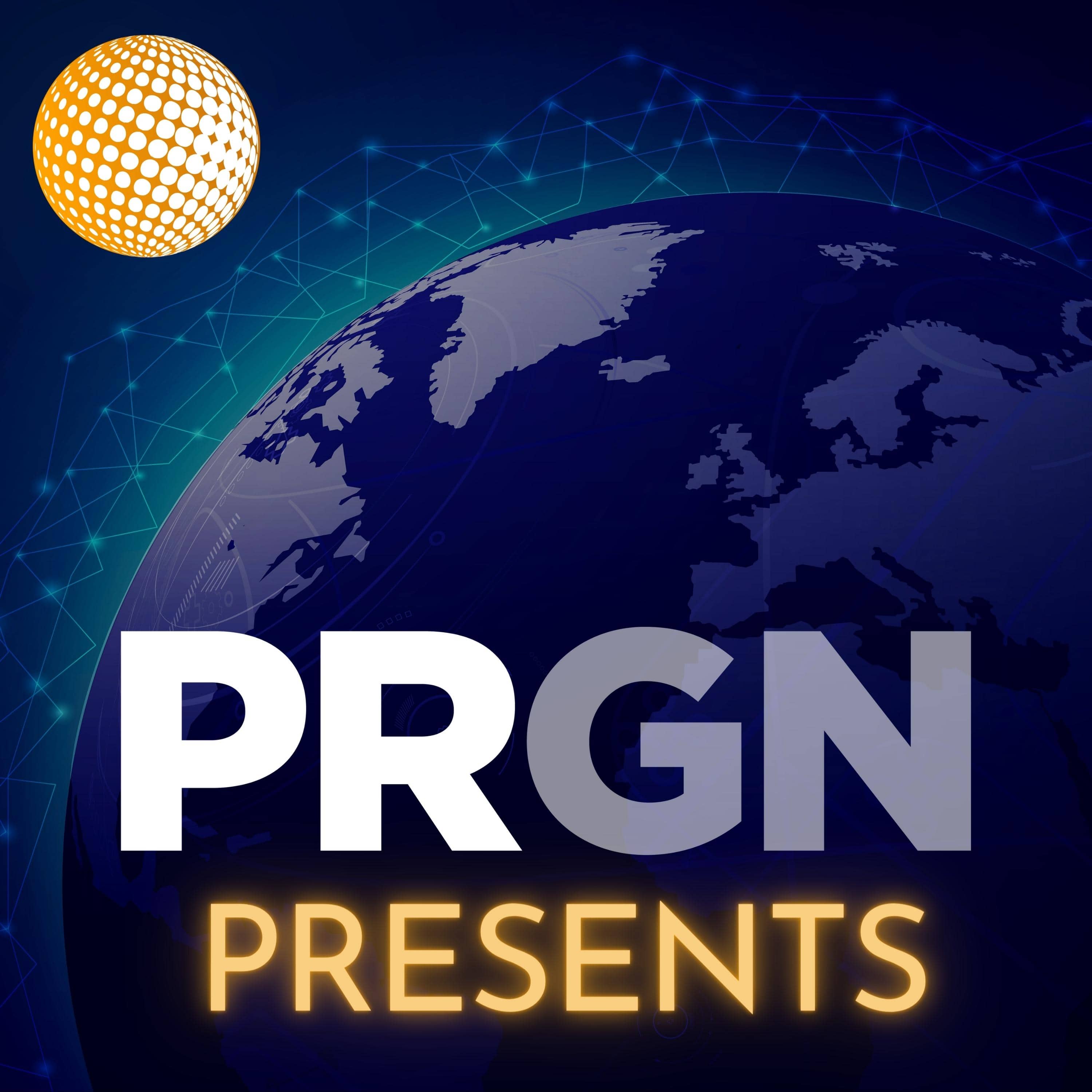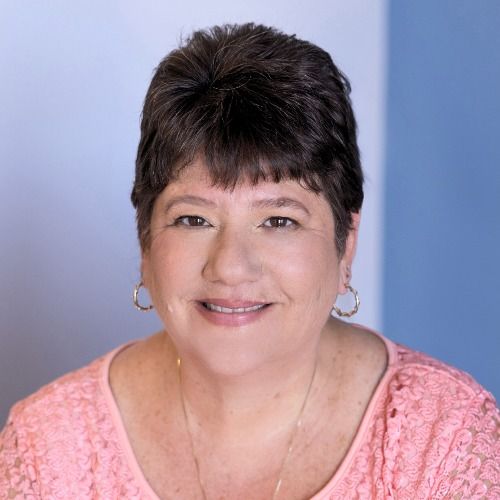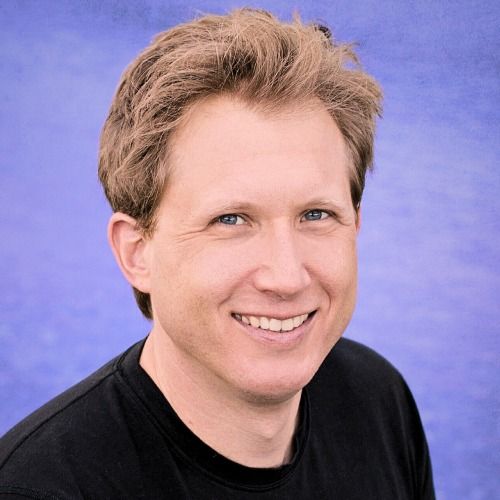S1 E8: Thinking Outside the Box and Bringing New Resources Into Your Agency with David Fuscus
What are the benefits of bringing together resources outside of the traditional public relations services to enhance client relationships? Looking at non-traditional practitioners not only make sense in a tight labor market, but it gives you the opportunity to offer more counseling services to your clients.
About the Guest
David Fuscus is CEO of Xenophon Strategies, a Washington, DC based communications and sustainability firm that he founded in 2000. Xenophon has key practices in Public Relations, Crisis Communications, Public Affairs and ESG/Sustainability. Fuscus is also the 2022 President of the Public Relations Global Network.
About the Host
Abbie Fink is vice president/general manager of HMA Public Relations in Phoenix, Arizona and a founding member of PRGN. Her marketing communications background includes skills in media relations, digital communications, social media strategies, special event management, crisis communications, community relations, issues management, and marketing promotions for both the private and public sectors, including such industries as healthcare, financial services, professional services, government affairs and tribal affairs, as well as not-for-profit organizations.
PRGN Presents is brought to you by Public Relations Global Network, the world’s local public relations agency. Our co-host and executive producer is Adrian McIntyre with Speed of Story, a B2B communications firm in Phoenix.
Follow the Podcast
If you enjoyed this episode, please follow PRGN Presents in Apple Podcasts, Spotify, Google Podcasts, or any other podcast app. We publish new episodes every other Thursday. To have them delivered automatically and free of charge, just choose your preferred podcast player from this list, open the app, and click the button to “Follow” or “Subscribe” to the show: https://prgnpodcast.com/listen
Need to hire a PR firm?
Leading a business effectively in today's fast-paced world requires expert guidance and a strong communications strategy. No matter where you do business, PRGN has a member agency in your region with the deep industry expertise, international experience, and local market knowledge you need to connect with your target audience and achieve your goals. Find a PR firm near you »
Transcript
Welcome to the Public Relations Global Network's 30th anniversary podcast. I'm Adrian McIntyre ...
Abbie Fink:And I'm Abbie Fink, vice president/general manager of HMA Public Relations in Phoenix, Arizona and a founding member of PRGN. With public relations leaders embedded into the fabric of the communities we service, clients hire our agencies for the local knowledge, expertise, and connections in market spanning six continents across the world.
Adrian McIntyre:Our guests on this "limited edition" podcast series are all members of the Public Relations Global Network. They'll discuss such topics as workplace culture, creative compensation and succession planning, the importance of sustainability and Environmental, Social, and Governance programs, crisis communications, and outside-of-the-box thinking for growing your business.
Abbie Fink:For more information about PRGN and our members, please visit prgn.com. And now, let's meet our guest for this episode.
David Fuscus:Hello, I'm David Fuscus. I'm the CEO of Xenophon Strategies in Washington, DC.
Abbie Fink:David, one of the things I wanted to chat with you about is over the last couple years as PR practitioners and business owners, we've been really struggling with what the workplace needs to look like, and should we think differently about the type of individual that we're bringing into the workplace, particularly to serve our clients in the communications capacity. And you've done some really interesting things in terms of thinking outside of the box. I thought we could spend a little bit of time talking about that. One in particular over the most recent time with COVID-19 was bringing in a medical professional to join your team, at least in the short term. So talk a little bit about what that looks like.
David Fuscus:Well, in the context of what's going on out there, technology has transformed and disrupted, to use the modern vernacular, so many industries. There's really no industry that's been disrupted more by technology than public relations. If you think back 20 years ago, 25 years ago, the practice of PR was earned media. And now there's so many more things. There are so many more components of that. And what we've seen over the last 10 years, trying to stay relevant with our clients' needs, is a need for more non-communication type of counsel and programs that can become the things that we use the communication skills to go out and broadcast. And in the context of that ... so at the beginning of the pandemic, I was on a phone call with one of our clients, a big energy company. And we were talking about the pandemic and what to do. They were making decisions. And I thought about it a little while afterwards, and I called up the COO. And I'm like, "you need to hit the brakes because we don't know what we're talking about. We don't have the information we need. We do not have medical information." And so took that idea, that kernel of an idea, recruited initially one epidemiologist, a Doctor of Public Health, and then another epidemiologist who was a mapping epidemiologist. And we began rolling out and offering straight consulting services to companies. And it worked out ...from a business point, it worked out very well. These people were independent contractors that came in. And what made that all work is that we were open to doing something that was non-communications but was related to it. So all of this work that we did, we did the work, we did the consulting. We also did the PR on top of it of going out and letting the world know what they were doing. And we look for, at Xenophon we look for opportunities to do that more and more to the point where our revenue right now is probably 20% straight out consulting.
Adrian McIntyre:It's interesting, David, thinking back to a biography I read of Edward Bernays, who's considered by some to be a founding member of the practice of public relations.
David Fuscus:"The Father of PR" is his nickname. Absolutely, yeah.
Adrian McIntyre:But he did something similar, and we could debate whether he did it for the right reasons or the wrong reasons, but putting together scientific panels and even starting journals on particular topics to help shape the narrative. I'm not suggesting there was a spin component to what you were doing, but this idea of bringing in outside scientific experts and mobilizing them to then have something to communicate about is not a brand-new idea. It's almost an old one.
David Fuscus:Well, but it's absolutely. Edward Bernays, you know, he was around in the 1920s to the 1950s. Kind of what's old is new again. But as Abbie well knows, if you're going to go out and promote something in the public realm to the public, you need to have something that's newsworthy to in order to promote. I'll give you an example. A couple of years ago, the US horse racing industry was suffering from a number of racehorse deaths that got a tremendous amount of national press. We were brought in to work with that. And we went in and looked at our client, the Jockey Club, which is an organization, and they were doing all this great work on equine health and horse health and safety for horses. It just wasn't collected all in one place. We put it together, we put it into a report all this research, we went out with the report and then built our communications around that. So yeah, it is Bernays. It's exactly the stuff. As long as you're not filling things up with BS, right? Because what works best in the public realm these days, and I think probably always has, is truth.
Abbie Fink:And in the case of COVID, as you said, none of us really knew what we were talking about. As communicators, we have the knowledge of what we should do, how we should do it, maybe the timing of what should come out, who should be the person sharing that information, and such. But as you said, we didn't have the information. And what we said today was going to be very different tomorrow. Do you see this applying to other categories? Are there other outside professionals that we can think about that can help in that shaping and framing of the messaging that may not be specific to the medical profession?
David Fuscus:Absolutely, and I'll give you an example. About two months ago we hired a new employee, a young man. It was a tech entrepreneur actually from Ukraine, from Liev, in the States. He was a refugee. And he didn't know anything about PR and still really doesn't. But as we expand our technology practice and we've got one client in particular that's a blockchain crypto company, a well-established one. And so we hired him in because of his technical expertise in that field, not as a communicator. And he is doing some communications things, but he has become kind of the brainchild of that whole account team now because he understands it so well. And if I'd gone out and hired somebody just maybe who'd worked in PR or were in tech and stuff, I wouldn't have this deep reservoir of experience with this person. And when you're working for agencies, there's always the question, like how billable is that person going to be? Because you've got to generate revenue from folks, but you can have people working on account teams that aren't necessarily doing the PR. And for us, this is just a recent example. In our ESG and sustainability practice, which is becoming more and more consulting, doing the work, is that we're looking to make a hire now. And we're not hiring PR people. We're going to hire a data scientist, because you need somebody to be able to handle all that data and those numbers. And that'll get fed back into the PR machine, but it really enriches the overall experience. And I think the overall work for the clients really benefits from hires like these.
Abbie Fink:It's a mindset that we have to shift to think differently about it. We are so locked into, they need to be good writers. They need to understand Associated Press style. They need to have media relations skills, whatever that is. We dabbled a little bit and got a little less strict when we were bringing in social media content developers. And we might be a little bit on the creative side, but this is a real, radical departure, if you will, to bring in those true experts that are providing us with the content, allowing us to be the sharer of that content, but it comes from a different place. And it appears to me that is how we have to start thinking. And whether we are doing this in a crisis situation, or we're doing it on a very specific line of business, we have a much better opportunity to advise our clients if we're looking at it from a larger perspective, and we're getting that knowledge and expertise. We are the expert communicators, but that doesn't mean we're experts in all the topics we're being asked to communicate about.
David Fuscus:Absolutely. But it's the combination of being expert communicators and also a trusted voice that's based in experience to how do you create things that are newsworthy and attention worthy out there because the days of sending out a press release, written like a story as it always is, is long gone if they were ever here. I wasn't doing PR in the sixties and the fifties, but I guess that it wasn't just throwing press releases out. I tell my people all the time, the press release has two purposes. It introduces the issue, and then it is a fact in a quote delivery device, right? You're not getting anything out from there. And when you're building what you're out promoting around real things that you're doing to create news, you get attention on it, right?
Abbie Fink:Where do you find these other folks? What's your method to put out the job notice that you're hiring a crypto expert or an epidemiologist?
David Fuscus:I'd like to say you just advertise on LinkedIn. I've had the most success of going out to my network. Now, I'm in Washington, DC. I come out of politics. And back when I was on Capitol Hill, when I first got there in the eighties, I began working on consciously building a network and the care and feeding of it. I spend the first hour of every day calling people, touching base, this kind of thing. So it's going out to the network. That's the place that you start. However, right now we're advertising for a data scientist. We want to get somebody relatively just out of school. So we're advertising at schools for the coming ... for the graduation cycle of universities that are really skilled in data science.
Abbie Fink:So these individuals that have these skill sets need to think differently as well about where they're considering their employment, because they probably wouldn't have had PR agency on their list of places to send a resume.
David Fuscus:Well, it was interesting in our discussion today at the biannual media of the Public Relations Global Network, a guy Mark Paterson from Currie Communications in Australia was talking about his recruiting. And his firm is almost exclusively now in environmental issues and sustainability, but he's not really hiring straight PR people anymore. He's going and hiring people that work at sustainability organizations in communications to have those two things. So he's being very targeted in his recruitment. He's not just going out for resumes.
Abbie Fink:So I think the lesson in this is for both sides of that equation as the communications professionals, we need to think differently about what we are offering in our counseling role to our clients and what that team of individuals looks like. And it may not be that traditional definition. And those that we want to bring in can find value in joining and partnering on behalf of our clients to work together, because ultimately they are using their skillset. They're just doing it within the consulting role or within a consulting agency versus in-house with another firm.
David Fuscus:Absolutely, very well said. And the work that you do on consulting, that type of stuff becomes most powerful when it's coupled with communications, and you're out launching out into the world.
Adrian McIntyre:Thanks for listening to this episode of the Public Relations Global Network's 30th anniversary "limited edition" podcast series.
Abbie Fink:You can find all the episodes now in your favorite podcast app. Episodes are also available on our website – along with more information about PRGN and our members – at prgn.com.





